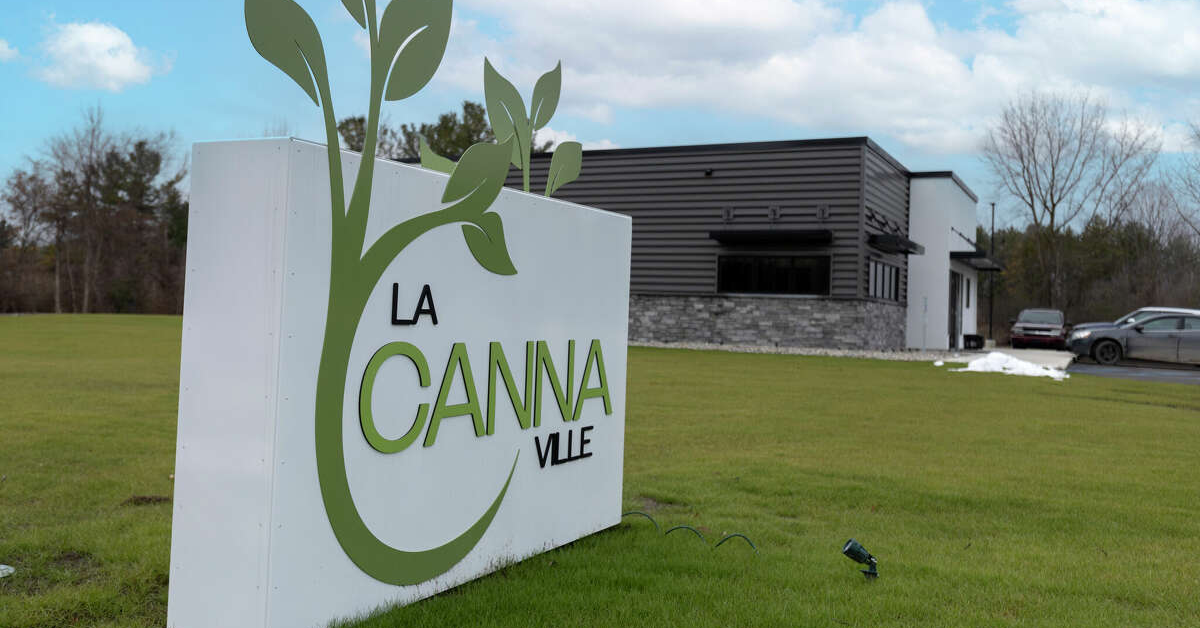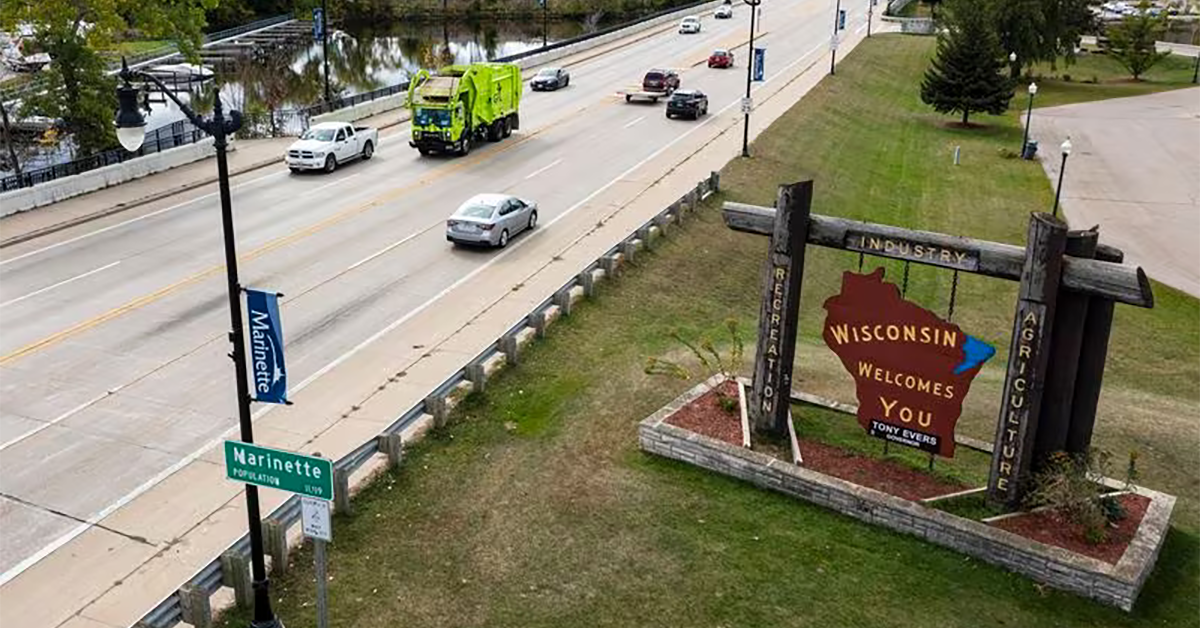MIOSHA Launches Safety Program for Michigan's Growing Cannabis Sector

Michigan's Occupational Safety and Health Administration (MIOSHA) has launched a state emphasis program aimed at safeguarding employees in the burgeoning cannabis industry. This initiative comes in response to the rapid growth of the sector following the legalization of recreational cannabis in Michigan in 2018. The state now boasts over 1,000 dispensaries, in excess of 1,000 growers, and 228 processors. MIOSHA has identified these areas as having the highest frequency of occupational safety and health risks.
To address these concerns, MIOSHA has developed a dedicated cannabis safety webpage, offering a plethora of free resources. These include informative fact sheets and educational video sessions, in collaboration with the Michigan Cannabis Regulatory Agency, which is responsible for overseeing adult-use marijuana establishments and licensing.
The educational material provided covers a wide range of topics, including an overview of MIOSHA's Consultation Education and Training Division, guidelines on hazard communication, and the proper use of personal protective equipment. Additionally, the program offers two PowerPoint presentations designed specifically for employers in the cannabis industry. These modules cover critical aspects such as:
- MIOSHA regulations applicable to new businesses.
- Chemical exposure risks faced by workers.
- Mandatory workplace posters.
- Relevant MIOSHA rules in administrative, agriculture, general industry, and construction sectors that apply to cannabis businesses.
- Protocols for reporting injuries and illnesses, and maintaining records.
- Requirements for Safety Data Sheets.
- Awareness of hazards like elevated noise levels and air contaminants.
- Guidelines on respiratory protection.
- Standards for sanitation.
Employers in the cannabis industry are encouraged to utilize MIOSHA's Consultative Assistance Program for help in identifying workplace hazards and training their workforce effectively. This proactive approach by MIOSHA is a significant step in ensuring the health and safety of workers in Michigan's rapidly evolving cannabis industry.
LaCannaville: A Story of Community Revival and Cannabis in Midland County

Upon entering LaCannaville, the newest cannabis dispensary in Midland County, Michigan, customers are immediately enveloped in a rich tapestry of scents ranging from the unmistakable aroma of marijuana to subtler floral and basil notes. This sensory introduction marks the beginning of a unique shopping experience, guided by knowledgeable budtenders who take the time to understand each customer's preferences and needs before recommending suitable products.
The dispensary, a venture by Sue LaBonville and her son, Kaleb, stands as a testament to an unexpected career turn for LaBonville, who retired in 2021. Initially distant from the world of cannabis, her perspective shifted after witnessing its therapeutic benefits for her sister, who has an autoimmune disease. Despite the surprise of her friends, LaBonville became a prominent figure in her community's cannabis industry.
The inspiration for LaCannaville was born out of the desire to contribute to the recovery of Sanford, their hometown, which was hit hard by COVID-19 and the 2020 floods. Kaleb's suggestion to explore the cannabis industry led to their mission of establishing a distinctive destination business, which they believed would help rejuvenate Sanford and attract visitors.
LaBonville's research revealed a diverse clientele, including professionals, working-class individuals, and a significant segment of older customers seeking relief from various ailments. This diversity is reflected in LaCannaville's customer base.
The journey culminated in the opening of LaCannaville in November, shortly before Thanksgiving. It became the second cannabis dispensary in Midland County, following the opening of Emerald Fire Provisioning Center in Coleman in 2022. Since its inception, LaCannaville has experienced a thriving business, drawing customers from local and neighboring areas for its convenience and selection.
LaBonville is particularly moved by the impact of her products on customers suffering from conditions like arthritis, ALS, and lupus. Her personal interactions with customers seeking relief are both poignant and affirming of her business's purpose.
The decision to open LaCannaville followed Sanford's village council voting to opt into state statutes allowing retail cannabis sales, with LaBonville's vision for the dispensary winning unanimous support from the council. However, navigating the cannabis industry in Michigan is challenging, with strict regulations, heavy taxation, and limited financial services due to cannabis's Schedule I status.
Despite these challenges, LaBonville's business acumen gives her an edge in Michigan's burgeoning marijuana market. The state's cannabis industry is expected to generate significant revenue, with Michigan poised to become the second-largest market in the U.S. LaBonville remains committed to maintaining her business's independence and contributing to her community, despite the competitive pricing and market pressures.
LaCannaville not only serves its customers but also aims to enhance Sanford's appeal. The dispensary's website features local attractions, encouraging visitors to explore the community further. This approach aligns with LaBonville's belief that every dollar spent on cannabis in Sanford could boost local businesses.
The dispensary, managed by Matt Dawson, a local who was part of the anti-drug DARE campaign, now sees cannabis as a unifying and healing element. He advocates for education about cannabis, challenging stereotypes and misconceptions, particularly those associated with the outdated notion of marijuana as a gateway drug. Research from the Michigan Cannabis Regulatory Agency supports this stance, indicating that marijuana use is not a primary factor in the choice to use illicit drugs.
LaCannaville represents more than just a cannabis dispensary; it's a symbol of resilience, community support, and a shift in societal attitudes towards cannabis. It's a place where education, healing, and community revitalization intersect, demonstrating the evolving role of cannabis in modern society.
Cross-Border Cannabis: The Michigan-Wisconsin Divide on Marijuana Enforcement

Heather Robertson, an employee at Rize, a recreational marijuana dispensary in Menominee, Michigan, has experienced frequent police stops upon returning to her home in Wisconsin, where marijuana remains illegal. She suspects these stops are due to her association with the dispensary, as officers often inquire about the presence of marijuana in her vehicle. Despite not receiving any tickets, Robertson's experiences highlight the growing tension at the Michigan-Wisconsin border following the legalization of recreational marijuana in Michigan.
This tension is evident in the rising number of marijuana-related citations in border counties. For instance, Florence County saw an increase from four citations in 2019 to 83 last year, coinciding with the commencement of recreational marijuana sales in Michigan. Similarly, Marinette city police reported a significant jump in citations, from 129 in 2019 to 548 last year.
Local residents and marijuana enthusiasts believe Wisconsin police are closely monitoring dispensaries and customers, particularly those with Wisconsin license plates. This suspicion has led to frequent warnings among dispensary clients about potential police stops upon re-entering Wisconsin.
Despite these concerns, Wisconsin law enforcement officials deny any targeted surveillance or marijuana enforcement operations. Marinette County Sheriff Randy Miller emphasizes that their primary focus is on combating more severe drug issues, such as fentanyl, heroin, and methamphetamine.
The availability of marijuana in Michigan and its illegality in Wisconsin has created a unique challenge for law enforcement. Officers often encounter marijuana during routine traffic stops, especially when dispensary packaging is visible. Florence County Chief Deputy TJ Peterson acknowledges the ease of finding marijuana on travelers, given the dispensaries at both ends of the border.
Kay Lynn Olesen's experience exemplifies this situation. Pulled over for minor traffic violations, a deputy noticed a dispensary bag in her car and issued a citation. Olesen, a Green Bay resident, where small amounts of marijuana are decriminalized, contested her ticket, expressing her desire for Wisconsin to follow the legalization trend.
Marinette, a bustling city connected to Menominee, Michigan, is experiencing growth, with increased job opportunities and a rise in felony cases. Police Chief Jon Lacombe, emphasizing the city's busy law enforcement agenda, refutes any notion of targeting marijuana users.
Despite higher marijuana possession citation costs in Marinette, former Police Chief John Mabry clarifies that revenue generation is not the objective. The city's budget reflects a minor contribution from court fines, including those for marijuana offenses.
Lacombe, with deep roots in Marinette, recalls a focus on combating heroin in the mid-2000s. He acknowledges the benefits of marijuana legalization, citing reduced risks compared to illegal grow operations and potentially tainted products.
In nearby Peshtigo, Police Chief Fred Popp foresees marijuana legalization as inevitable. He notes a shift in law enforcement perspectives over time, with more experienced officers viewing the issue in shades of gray rather than black and white.
This sentiment is echoed in Florence County's decision to train their drug-sniffing dog without marijuana detection, anticipating future legalization. The county is willing to forego marijuana citations, considering the broader implications for law enforcement.
Detroit's Psychedelic Church Shifts Legal Battle to Federal Arena

Note to Readers: While the primary focus of our platform remains cannabis-related news, we think it's important to explore the parallel happenings in the realm of psychedelic substances in Michigan, due to its close kinship and its potential implications for future policy-making in related fields. We hope you find the following article enlightening.
Soul Tribes International Ministries, known for advocating the use of psilocybin mushrooms as a religious sacrament, has recently escalated its legal battle by moving the case to federal court. The organization, operating inside Detroit's Bushnell Congregational Church, faced a significant setback when the Detroit Police Department raided the establishment on September 22nd, leading to a temporary restraining order and a nuisance claim against the owner, Shaman Shu, also known as Robert Shumake and Bobby Japhia.
In a notable development on November 6th, Shu initiated the transfer of his case to federal court, citing a violation of the Religious Freedom Restoration Act by the city's shutdown of the church. This move to federal jurisdiction marks a strategic shift in the legal approach of Soul Tribes. However, the City of Detroit has countered this action, petitioning on December 4 to remand the case back to Wayne County Circuit Court, emphasizing that the issue does not involve federal law and is more suited to regional jurisdiction due to its focus on local nuisance concerns.
The transition to federal court led to a significant change in legal representation for Shu. Initially represented by Detroit's Cannabis Counsel, the firm withdrew from the case on November 27th, citing both an "irreconcilable breakdown in the attorney-client relationship" and unpaid fees. The firm's departure followed Shu's decision to move the case to federal court without their knowledge. Shu is now represented by Florida-based attorney George Lake, who is licensed in multiple states and specializes in the free exercise of religion and the sacramental consumption of psychedelics/entheogens. Lake, who also represents clients in similar cases involving ayahuasca ceremonies, brings a unique expertise to Shu's defense.
This legal controversy centers around Soul Tribes' use of psilocybin mushrooms, which they regard as a holy sacrament. The church was selling these mushrooms from a "sacrament center" on its grounds. The Metro Times' coverage of the church in September preceded the seizure of significant quantities of mushrooms and marijuana by Detroit Police, along with the discovery of a laboratory for manufacturing these substances.
Soul Tribes and Shu now plan a $1 billion countersuit against the city, alleging racial and religious discrimination and claiming substantial vandalism and damage to the church property during the period it was padlocked. The countersuit highlights the church's claims of infringement on religious freedoms and seeks to address the economic damages incurred.
The case of Soul Tribes brings to the forefront critical issues regarding the interpretation of religious freedom, the legality of entheogenic substances, and the role of local versus federal jurisdiction in such matters. The outcome of this case could set a precedent for similar situations involving religious practices and controlled substances.
Algonac to Hold Referendum on Marijuana Establishment Ordinance

Residents of Algonac, Michigan are set to vote in February on a pivotal decision regarding the city's stance on marijuana establishments. In a recent city council meeting, Mayor Rocky Gillis announced that a petition with 353 valid signatures had been submitted. This petition proposes the repeal of Algonac's existing ordinance, which prohibits marijuana establishments, in favor of adopting a new ordinance to permit a single marijuana dispensary within the city.
This dispensary, to be licensed by the state of Michigan, would cater to both medical and recreational marijuana users. The proposed location for the dispensary is within a commercially zoned district in Algonac. The city's charter mandates that such petitions be presented to the city council, which then has 30 days to either adopt the proposed ordinance, repeal the existing one, or put the matter to a public vote.
Mayor Gillis outlined the procedural steps following each option. If the council opts to adopt or repeal the ordinance, the city attorney would draft a new zoning ordinance, reviewed by the planning commission without a public hearing. The recommendation from the commission would then be introduced and potentially adopted in subsequent city council meetings.
Alternatively, should the council decide to put the proposal to a public vote, the matter would be decided in the next scheduled election on February 27th, 2024. Council member Dawn Davey motioned for this third option, favoring a democratic decision by the city's electorate.
During the meeting, City Attorney Jim Downey clarified the distinctions between the first two options. Both would involve the planning commission due to the need for zoning accommodation for the proposed dispensary, a consideration not previously required under the existing prohibition ordinance.
Council member Michael Bembas suggested that since the referendum is likely to pass, the council could bypass the ballot and proceed directly with planning. However, Mayor Pro Tem Raymond Martin and Council member Cathy Harris voiced support for a public vote, emphasizing the importance of community input on this citywide issue.
Downey indicated that even if the issue goes to voters, the city could still draft an ordinance in the interim, allowing time to study similar ordinances in other communities and address zoning issues.
Council member Davey noted that if the referendum passes, Algonac would become the second city in the county to allow dispensaries, following Port Huron. She expressed concerns about potential litigation arising from granting a single dispensary license. Downey acknowledged these concerns, suggesting that additional time could help address potential legal issues.
Ultimately, the council unanimously agreed to submit the proposal to the electorate, with Council member Corey Blair absent from the meeting.
Puff Cannabis Teams Up with Jeeter for Charitable "Jackets for Joints" Drive

Puff Cannabis Company, a Michigan-based enterprise, has launched its second annual "Jackets for Joints" charity event in collaboration with Jeeter, a product of Dreamfields Brand. Starting December 5th and running through December 22nd, this event aims to collect new winter coats for children aged 3 to 12. The company invites customers to participate by donating new coats at any of their locations across Michigan, including Madison Heights, Hamtramck, Utica, River Rouge, Bay City, Oscoda, Traverse City, Sturgis, Monroe, and Kalamazoo.
Since its establishment in 2019, Puff Cannabis has focused on delivering top-tier cannabis products, competitive pricing, and outstanding customer service. The "Jackets for Joints" initiative allows customers to contribute a new coat with its tags still attached in exchange for a complimentary 1-gram Jeeter infused pre-roll or a jar of Baby Jeeter infused pre-rolls, subject to a one-per-customer limit while supplies last.
This campaign is part of Puff Cannabis' ongoing commitment to community support, as emphasized by Justin Elias, the Founder and President of Puff Cannabis. Elias highlights the significance of such initiatives, especially in Michigan, where the need for warm winter clothing is critical. Following last year's successful drive and a recent donation of over 2,500 Thanksgiving turkeys, Elias underscores the importance of supporting local communities and ensuring children are well-equipped for winter.
All jackets and coats collected will be donated to local charities across Michigan, directly aiding children in need. Puff Cannabis encourages everyone to join in this meaningful cause this holiday season, aiming to spread warmth and community spirit. The company has listed its various locations across Michigan to facilitate donations:
- Puff Cannabis River Rouge - 11397 W. Jefferson, River Rouge
- Puff Cannabis Hamtramck - 11931 Joseph Campau, Hamtramck
- Puff Cannabis Madison Heights - 2 Ajax Drive, Madison Heights
- Puff Cannabis Utica - 44825 Van Dyke Ave, Utica
- Puff Cannabis Monroe - 14750 LaPlaisance Rd., Suite 180, Monroe
- Puff Cannabis Kalamazoo - 4305 Portage St, Kalamazoo
- Puff Cannabis Oscoda - 635 S. State St, Oscoda
- Puff Cannabis Bay City - 1680 Marquette Ave, Bay City
- Puff Cannabis Sturgis - 651 Wade Rd, Sturgis
- Puff Cannabis Traverse City - 1226 S. Garfield Ave, Traverse City


 Helpful Links
Helpful Links